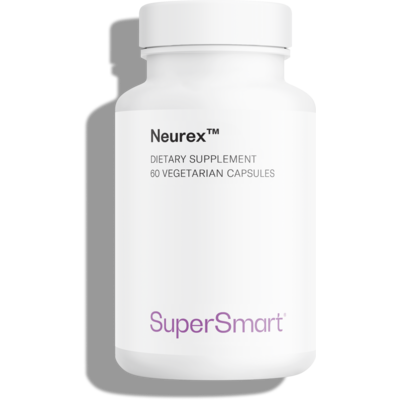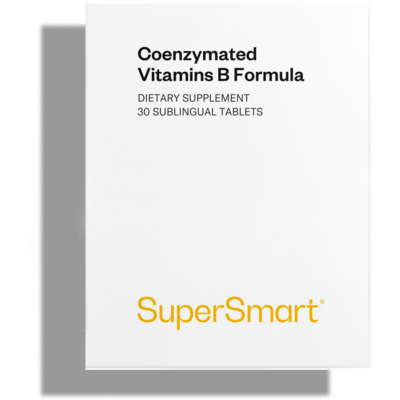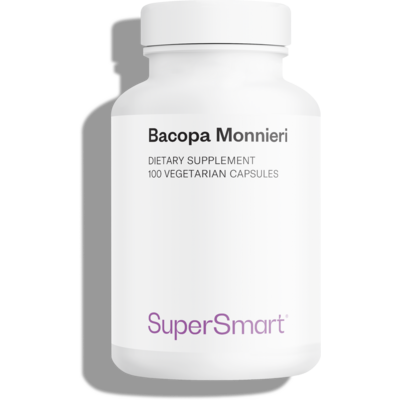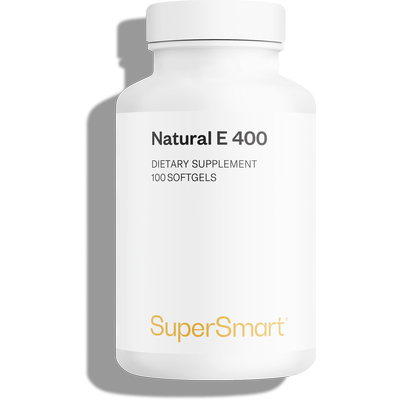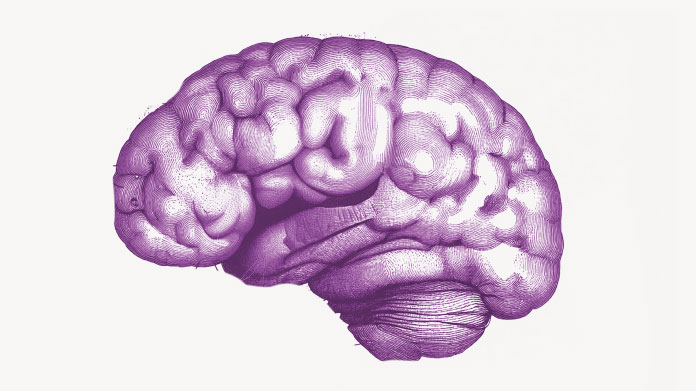The 4 best vitamins for memory
Diet plays a key role in maintaining brain health. But which particular vitamins are best for supporting memory?
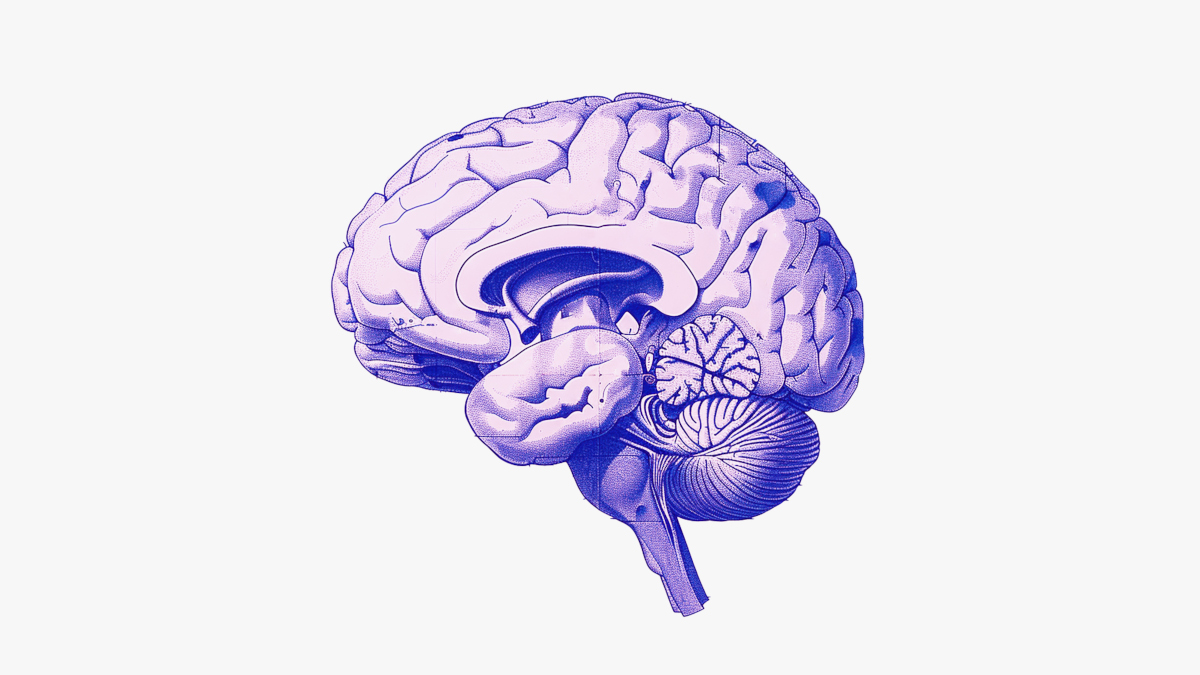
Memory: a complex cerebral mechanism
Memory is a complex cerebral mechanism composed of 5 interconnected systems : working memory, semantic memory, episodic memory, procedural memory, and perceptual memory (1).
There is no one site for memory in the brain: different parts are activated and interact depending on the type of memory mobilized. Thus the hippocampus, frontal lobe, left and right prefrontal cortices, parietal and temporal lobes, and cerebellum are all involved in some capacity in storing and retrieving memories.
However, all these mechanisms depend on synaptic plasticity – the ability of synapses to modify the strength of their connections in response to neuronal activity.
The problem is that as we age, synaptic plasticity diminishes. Not only that but over time, and under the effects of certain lifestyle factors, biochemical processes and neuronal health become compromised by oxidative stress.
Key elements for maintaining your memory
For optimal memory support, it’s essential to get enough sleep, take regular exercise, engage in brain exercises for mental stimulation, and eat a balanced diet. There are also certain vitamins that seem to offer particular benefits in terms of memory.
The 4 best vitamins for the memory and brain
B vitamins and memory
The first such nutrients are the B vitamins. UK scientists have shown that supplementing with B vitamins (specifically B6, B9, and B12) lowers homocysteine levels (3). Blood levels of this sulfur-containing amino acid can rise dangerously with age or in cases of deficiency.
Referred to as hyperhomocysteinemia , this causes glutathione levels to fall, further exposing the brain to oxidative stress. Having a high homocysteine level is a risk factor for the development of Alzheimer’s disease and dementia.
In addition, several B vitamins are thought to benefit memory by supporting the brain’s structural and functional integrity (vitamins B1, B3, B9, B12…), DNA repair (vitamin B12) and production of neurotransmitters essential for cognitive function (vitamins B1 and B6).
It’s easy to increase your intake of B vitamins by opting for a dietary supplement in which they are all combined (such as the complex Coenzymated B Formula).
Lack of vitamin D in relation to Alzheimer’s
A 2010 French study highlighted a new avenue of research around the link between vitamin D and memory (5).
Vitamin D has till now been mainly associated with benefits for bone metabolism, muscle strength, and the immune system. However, in this study, researchers observed a decline in neuron sensitivity to vitamin D in patients suffering from Alzheimer’s disease.
Most importantly, the study showed that intellectual function, including the ability to memorize, was lower in (elderly) patients deficient in vitamin D. This vitamin is believed to act by supporting neuroprotection, inflammation regulation, and the production of neurotransmitters crucial for neuronal communication, etc.
Although further studies are needed to confirm these findings, vitamin D certainly seems to offer potential benefits for memory (6).
You’ll find vitamin D in oily fish, chanterelle mushrooms, dairy products, egg yolk … as well as in specific supplements (such as Vitamin D3 5000 IU).
Vitamin C, an antioxidant for fighting neurodegeneration?
Current research suggests that low levels of vitamin C in the body may also lead to the development of neurodegenerative diseases.
Vitamin C helps protect cells against oxidative stress, an important factor in this type of disorder. It may also work by helping to regulate neurotransmission and blood flow in the brain. It therefore constitutes a valuable aid in protecting memory (7).
Good sources of vitamin C include citrus fruit, berries, kiwi fruit, and peppers … as well as specific supplements (such as Asc2P, a stable and powerful form of vitamin C).
Vitamin E, another potent antioxidant for maintaining memory
Vitamin E is also a powerful antioxidant and therefore excellent for maintaining healthy brain cells and the brain in general.
A recent study showed that elderly subjects with high blood levels of vitamin E were less likely to develop memory problems (8).
Vitamin E is found in fat-containing foods (such as walnuts, almonds, vegetable oils, fish …) as well as in supplements (such as Natural E400).
Other supplements good for the brain and memory
And finally, certain plants are recognized as providing natural memory support, including Bacopa monnieri, an aquatic succulent native to Asia, and Ginkgo biloba, the maidenhair tree, used for hundreds of years in traditional Chinese medicine. Both are recognized for helping to maintain good peripheral microcirculation which is associated with good cognitive function and memory in particular. That’s why these plant extracts are often combined in synergistic formulations targeting brain health (such as Neurex).
SuperSmart ADVICE
References
- https://www.inserm.fr/dossier/memoire/
- HOOSHMAND, Babak, POLVIKOSKI, Tuomo, KIVIPELTO, Miia, et al.Plasma homocysteine, Alzheimer and cerebrovascular pathology: a population-based autopsy study. Brain, 2013, vol. 136, no 9, p. 2707-2716.
- VOGEL, Thomas, DALI‐YOUCEF, Nassim, KALTENBACH, G., et al.Homocysteine, vitamin B12, folate and cognitive functions: a systematic and critical review of the literature. International journal of clinical practice, 2009, vol. 63, no 7, p. 1061-1067.
- ASHOORI, Marziyeh et SAEDISOMEOLIA, Ahmad. Riboflavin (vitamin B2) and oxidative stress: a review. British journal of nutrition, 2014, vol. 111, no 11, p. 1985-1991.
- https://presse.inserm.fr/la-vitamine-d-une-nouvelle-piste-contre-la-maladie-dalzheimer/28364/
- MILLET, Pascal, LANDEL, Véréna, VIRARD, Isabelle, et al.Rôle de la vitamine D dans la ph 3ysiopathologie des maladies neurodégénératives. Biologie Aujourd'hui, 2014, vol. 208, no 1, p. 77-88.
- PRATICÒ, Domenico et DELANTY, Norman. Oxidative injury in diseases of the central nervous system: focus on Alzheimer’s disease. The American journal of medicine, 2000, vol. 109, no 7, p. 577-585.
- MORRIS, Martha Clare, BECKETT, Laurel A., SCHERR, Paul A., et al.Vitamin E and vitamin C supplement use and risk of incident Alzheimer disease. Alzheimer Disease & Associated Disorders, 1998, vol. 12, no 3, p. 121-126.
- STONEHOUSE, Welma, CONLON, Cathryn A., PODD, John, et al.DHA supplementation improved both memory and reaction time in healthy young adults: a randomized controlled trial. The American of Clinical Nutrition, 2013, vol. 97, no 5, p. 1134-1143.
Keywords
3 Days
My skin is clearing up nicely!
Pretty good for my skin so far.
Christian
6 Days
The new packaging is excellent
The new packaging is excellent - finally! No more squashed boxes and torn envelopes.
GORAN
6 Days
Great Product
Great Product
Larry Garrett
11 Days
Quick shipping
Quick shipping; good price. No issues!
Mary McCarty
12 Days
Thr product is very good and is helping…
Thr product is very good and is helping me on my health. Then is always on time
LUGO Luz
15 Days
Buying was fine
Buying was fine. I had problems with the website not recognizing my login info, and had to call to get it fixed. Other than that, everything was good.
David S. Clark
15 Days
Your super maca and super ginseng are…phenomenal
Your super maca and super ginseng are phenomenal supplements that compliment each other when taking them together. Fantastic feeling of well-being and lots of mid day energy without the crash.
Keith Mason
18 Days
I have had amazing results with every…
I have had amazing results with every supplement I've purchased. I am extremely satisfied with this company
kirstin Torres
18 Days
Fine products
Fine products . They are on the leading edge of online supplements. The only issue -so far-is they sometime run out of subscription items.
Jason Argos
20 Days
The ordering process is very user…
The ordering process is very user friendly and the products always come in a timely manner.
CARTER Rhonda
22 Days
The price for Dr
The price for Dr. Pero's AC-11 is reasonable and in line with his views. (my former colleague). Keep it pure.
CAMPBELL Clayton
24 Days
Right on every time.
Right on every time.
Arthur Nicholas
27 Days
They are cheaper than everyone else and…
They are cheaper than everyone else and the shipping was fast. Great company.
Patricia Adams
34 Days
Availability of quality health…
Availability of quality health supplements and it's wide variety is impressive. Ordering is seamless and shipping even during the holidays is well streamlined.
Mohamad Hussein
48 Days
A Product worth waiting for when not…
A Product worth waiting for when not available and then arriving as a surprise!
DOMINIC


